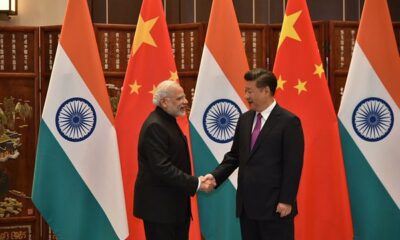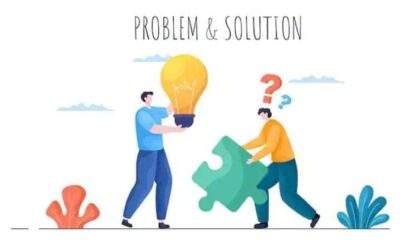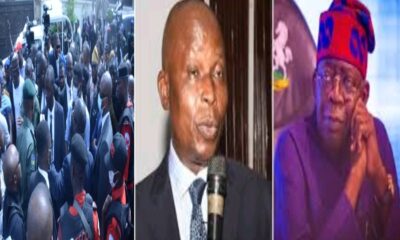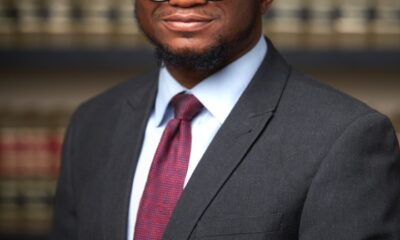Political Issues
Nigeria’s Unity Is Unfinished Business -By Bayo Oluwasanmi
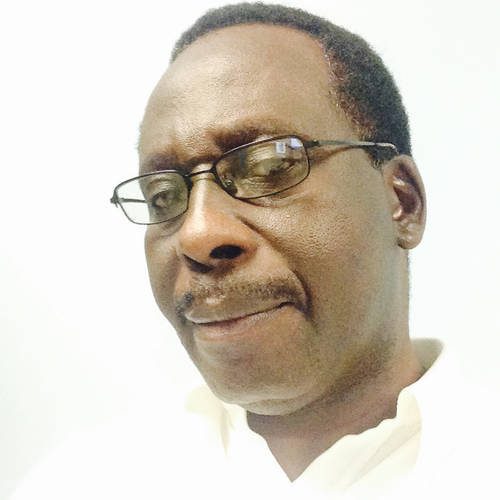

President Muhammadu Buhari’s speech to Nigerians on his return from his prolonged overseas medical treatment for an undisclosed ailment was a no-brainer. There was no pivot. There was no olive branch. There was no binding of wounds. No lofty summons to the better angels of our nature. More colloquially, Mr. Buhari fell back on his military dictatorial tendencies. In short, it was a speech that extended acrid anger of hostile, separate, unequal and divided ethnic groups of a deeply polarized nation.
Mr. Buhari thundered against separatist agitators. He said the 2003 Daura Accord between him and late Chief Emeka Ojukwu has forever sealed the unity of Nigeria. “Nigeria’s unity is settled and not negotiable,” says Buhari. He warned: “We shall not allow irresponsible elements to start trouble…” Without any polls, referendum, or plebiscite, Mr. Buhari concludes: “The national consensus is that, it is better to live together than to live apart.”
National unity means unity and solidarity among the Nigerian people. Nigeria is sovereign, secular, and a capitalistic democratic republic. Nigeria is a huge country with a huge population. It’s a country in which people speak different languages and profess different religions. Christians, Muslims, Shango worshipers, the Olorisas, etc., live here together. The Yorubas, the Igbos, and the Hausa-Fulanis, live together in this country. They differ from each other in various aspects. Culturally and religiously, we lead different lives. Regionalism, ethnicity, religion, culture, parochialism, and narrow patriotism are some of the great obstacles in the path of our unity.
We’re yet to overcome historical ethnic divisions, prejudices, biases, and promoting social cohesion and national unity. Nigerians are more disapproving of the country’s current federal system. There’s growing discontent with the lopsided, and badly tilted federal system, the state of the national economy and leadership. Worryingly, optimism about the future has significantly declined.
There’s pervasive disappointment. A majority of Nigerians believe the country has failed to advance on a range of socioeconomic indicators. These include personal safety, economic circumstances, employment opportunities, ethnic relations, collapsed infrastructures, epileptic electricity supply, and disparities between rich and poor. Access to basic necessities such as food, clean water, medical treatment, and cash income differs substantially by one’s position, privilege, connection, and influence. On a daily basis, Nigerians face degradation, grinding poverty, and extreme violence.
The agitations for Biafra and Oduduwa Republics have further confirmed that Nigeria is not one nation. The three major different Nigerias – Igbo, Hausa, and Yoruba – are deeply and bitterly divided by mistrust, misunderstanding, prejudice, bias, rivalry, and rancor. One group which benefits most from the status quo is happy while the groups that are disenfranchised grieve in disbelief at the evils they have to contend with as being part of one Nigeria. I interact every day with friends and families from both different Nigerias. Like a child of two divorced parents, I see how each thinks. The divide between the different Nigerias continues spreading because of injustice, poverty, and the tilted field. As a result, we grow less and less able to understand ourselves. Indeed, we have no desire to understand the other. They’re are not worthy of being understood.
Mr. President, Nigeria’s unity is an illusion. You cannot decree Nigeria’s unity – it’s unfinished business! Nigeria is constantly and consistently boiling with separatists agitations and unrest. The facts speak for themselves: Nigeria military schools and strategic institutions are all located in the north: Nigeria Defense Academy, Nigeria Defense College, Army School of Artillery, Army School of Infantry, Command and Staff College, Nigeria Army Depot, Air Force Training School, Nigeria Military School, Defense Industries Corporation, Air Force Institute of Technology, Army Doctrine and Training Command, National Institute of Policy and Strategic Studies, Army School of Education, and Army School of Military Police. The federal character favors one group over the rest: Northerners make up 70% of Nigerian foot soldiers, 80% of all the permanent secretaries in the federal ministries. 80% of those who have oil wells or blocs, 60% of army generals, 60% of head of federal parastatals, 60% of top officers of NPF, 70% staff of Nigeria State Security Service (SSS), 60% of staff of Nigeria Prison Services, 60% of top customs officials, 70% staff of Nigerian Ports Authority.
Revenue allocation is perhaps the major problem that continuously threatens the corporate existence of the country as one nation. Take a look:
North Central receives 20%;
CONTRIBUTES 0.00%.
North East receives 16%;
CONTRIBUTES 0.00%.
North West receives 21%
CONTRIBUTES 0.00%.
Every month, the 19 Northern states receive a minimum of 57% of 100% of oil revenue to which they CONTRIBUTE 0.00%.
South West receives 16%
CONTRIBUTES 3.97%.
South East receives 11.00%;
CONTRIBUTES 25.07%.
South South receives 15.00%
CONTRIBUTES 70.64%.
Nigeria has 774 Local Government Areas (LGAs). The North has 19 states, and the 19 states have 419 LGAs. The South has 17 states, and the 17 states have 357 LGAs. The data from the office of the Accountant General published by the Ministry of Finance (April 2013), the 357 LGAs of the 17 Southern states receive 45.1% of what they contribute is 100%, while the 419 LGAs of the 19 Northern states receive 54.9% of what they contribute is 0.00%.
National unity is the first and foremost necessity of peaceful and prosperous country. No one can deny the fact that unity is safety. Disunity results in fall of nations. There are many examples in the history of the world when due to lack of national unity there have been internal and external dangers to security and survival of countries. The present situation of our national unity is not very bright and encouraging. It is hopeless. We’re the worst victims of disunity. We have become totally disunited. This trend has proved to be very costly. We’re passing through the most critical period in our history. Sectarianism, corruption, injustice, political unrest, and economic crisis are causing a threat to the unity and solidarity of our country. To make Nigeria a united, powerful, and prosperous country, and for Nigerians to live a happy and secure life, national unity is a must. We must uproot all the causes of disunity and put in place the necessary reforms and restructure.
The government waffles and stumbles. The economy flounders and the country find itself in a state at least as bad as it was before. We’ve failed to create a viable and veritable federal system of a democratic regime. The flaws in our federal system have become worryingly visible. The great flame of democracy has been extinguished by blackout of barbarism and injustice. Our democracy is headed toward a dangerous place. Our citizens have been condemned to a lifetime of poverty. Our lives is a slow grinding failure. Our living standard is among the lowest in the world.
Mr. President, you cannot in a democratic system of government impose the kitchen gossip between you and Ojukwu (Hausa and Igbo without Yoruba) on 180 million Nigerians as the final word on the debate on national unity. Yes, Nigeria’s unity is negotiable! Even the 1999 Constitution provides for devolution and restructuring. Instead of issuing a decree for national unity, consider the following suggestions: make way for a new constitution, let there be referendum for people to decide either to stay or separate from the union, fix the epileptic electricity, fulfill your the campaign promise that every two years you’ll create two million jobs and two million housing units, relocate or redistribute the military schools and institutions from the north to all the 36 states of the federation, establish state and local government police, establish corruption courts with new set of judges, put some gum and teeth in the war against corruption, enforce rule of law, ensure speedy trials and commensurate punishment for looters. Without the rule of law, justice, restructure, and provision of basic amenities, Nigeria will never know peace, progress, and prosperity.
The Nigerian situation is horrifying enough. We need not serve as eager volunteers for fragmentary and spasmodic reforms that have failed to reach down to the profoundest needs of our country and our people.
You can reach Bayo at bjoluwasanmi@gmail.com.

